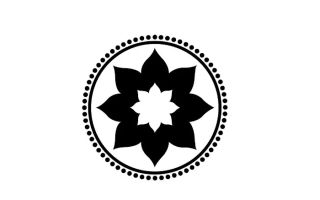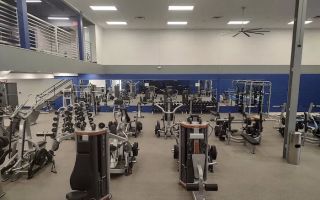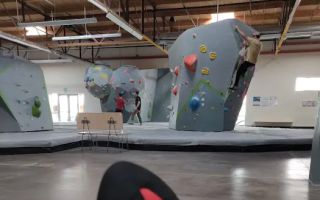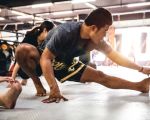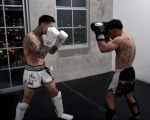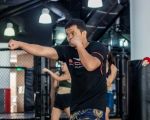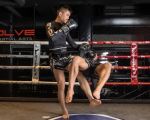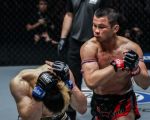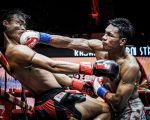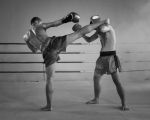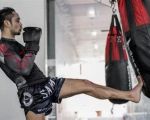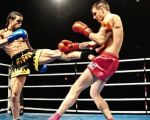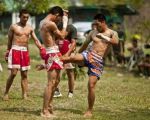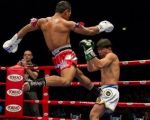- What Is Muay Thai?
- The Historical Origins of Muay Thai
- The Evolution of Muay Thai
- The Cultural Significance of Muay Thai
- Where to Train and Learn Muay Thai
1. What Is Muay Thai?
Muay Thai, also known as the "Art of Eight Limbs," is a martial art that uses fists, elbows, knees, and shins as striking weapons. Originating from Thailand, it has become one of the most popular forms of stand-up striking in mixed martial arts (MMA) and is also widely practiced for fitness and self-defense. What makes Muay Thai unique is its emphasis on powerful, precise strikes, clinch work, and the ability to attack from various angles.
Muay Thai is recognized for its conditioning and versatility, offering practitioners a full-body workout that improves strength, endurance, and flexibility. With its roots deeply embedded in Thai culture, Muay Thai has become an integral part of Thailand's identity, and it continues to inspire martial artists around the world.
2. The Historical Origins of Muay Thai
The origins of Muay Thai can be traced back to the military training of ancient Thai soldiers. The earliest forms of Muay Thai were used for self-defense in close-quarters combat during wartime. Known as "Muay Boran," this ancient martial art was designed to turn a fighter’s body into a weapon, using techniques like punches, kicks, knee strikes, and joint locks to neutralize an opponent. Over time, Muay Boran evolved into the modern form of Muay Thai that we recognize today.
According to historical accounts, Muay Thai was practiced by the Siamese warriors during the 16th century and became increasingly refined under the influence of King Naresuan in the 16th century. As it evolved, Muay Thai moved from the battlefield to the ring, where it became a popular sport in Thailand, celebrated in festivals and competitions.
3. The Evolution of Muay Thai
Muay Thai has undergone significant changes over the centuries. While its origins lie in ancient combat, the modern sport has been influenced by Western boxing techniques and other martial arts. In the early 20th century, Muay Thai began incorporating more structured rules, including weight classes, timed rounds, and gloves, which helped professionalize the sport.
The introduction of the "round" structure in Muay Thai competitions, as well as the use of the ring, brought the sport closer to the way we see it practiced today. During the 1930s, the sport also moved from the traditional open-air arenas to more modern indoor stadiums, allowing it to reach a wider audience.
With the increasing globalization of combat sports, Muay Thai has gained international recognition, becoming a key component of MMA training. Today, Muay Thai is not only practiced in Thailand but around the world, with training camps and competitions being held in various countries, spreading its techniques and culture globally.
4. The Cultural Significance of Muay Thai
Muay Thai is more than just a sport; it holds a deep cultural significance in Thailand. The art is often accompanied by traditional music and ritualistic movements known as the "Wai Kru" ceremony, performed by fighters before a match. This ceremony honors the fighter’s teachers and acknowledges the spiritual and physical aspects of training. The sport is also an important part of Thai festivals, where fighters showcase their skills in front of large crowds, celebrating Thai heritage and history.
One of the most iconic symbols of Muay Thai is the "mongkhon" headband, which is worn during the Wai Kru ceremony and represents the fighter’s spiritual connection to the art. This cultural significance is what sets Muay Thai apart from other martial arts, as it is deeply intertwined with Thai identity and tradition.
5. Where to Train and Learn Muay Thai
If you're interested in learning Muay Thai, there are plenty of opportunities to train in both Thailand and around the world. In Thailand, renowned training camps like Tiger Muay Thai in Phuket and Fairtex in Pattaya offer world-class training for all levels, from beginners to professional fighters. Many of these camps also offer packages that include accommodation and meals, making them ideal for those who want to fully immerse themselves in the sport.
For those outside of Thailand, many gyms in the United States, Europe, and Asia have adopted Muay Thai as part of their curriculum. These gyms typically offer classes for fitness and competition, with qualified instructors teaching everything from basic techniques to advanced combinations and clinch work.
For the best gear to complement your Muay Thai training, visit Humble Challenger, which offers top-quality Muay Thai gloves, pads, and other equipment that are designed to enhance your performance and safety during training.


